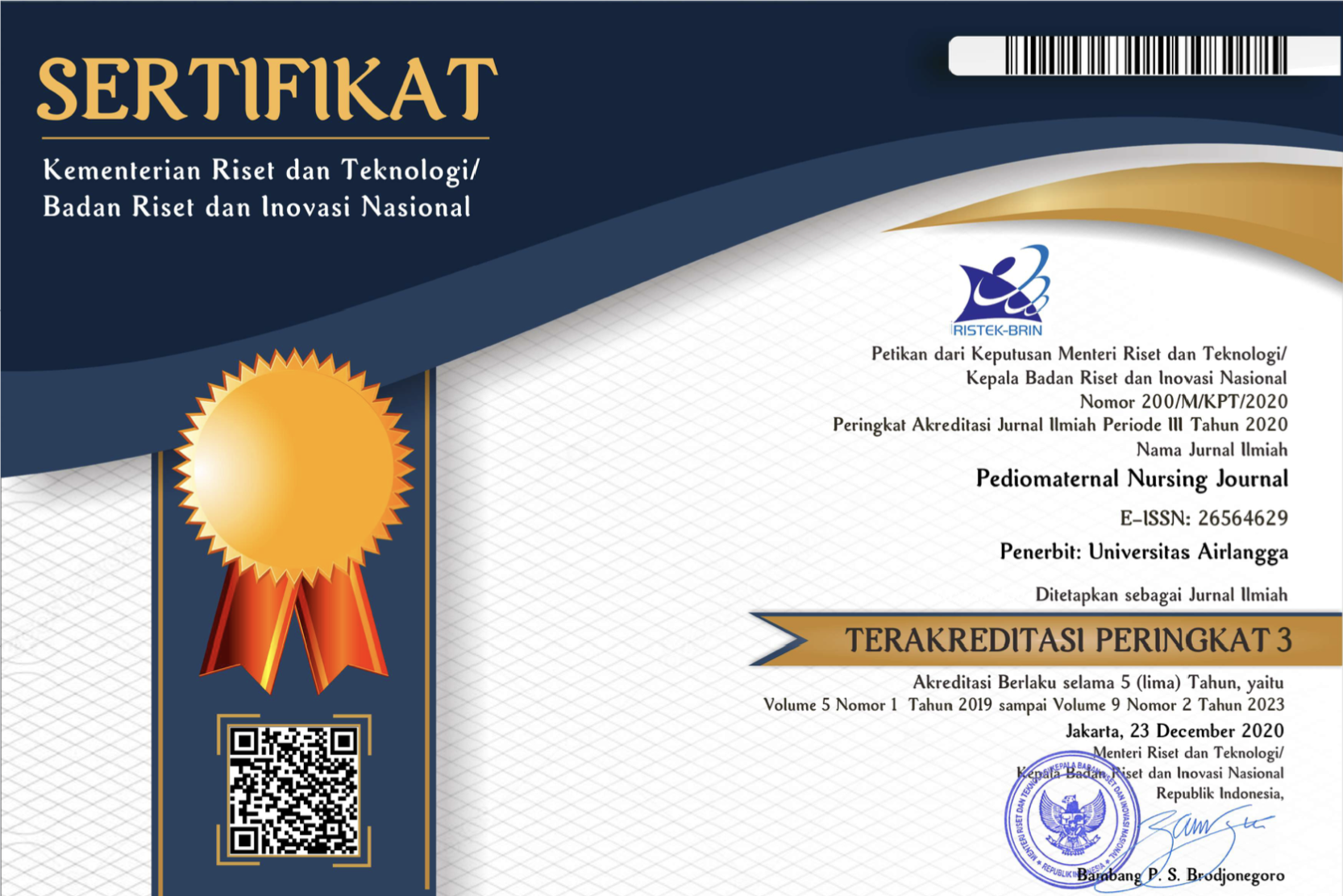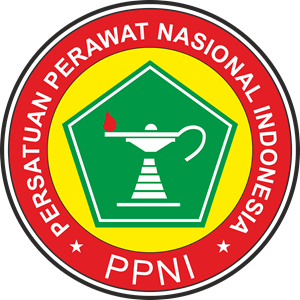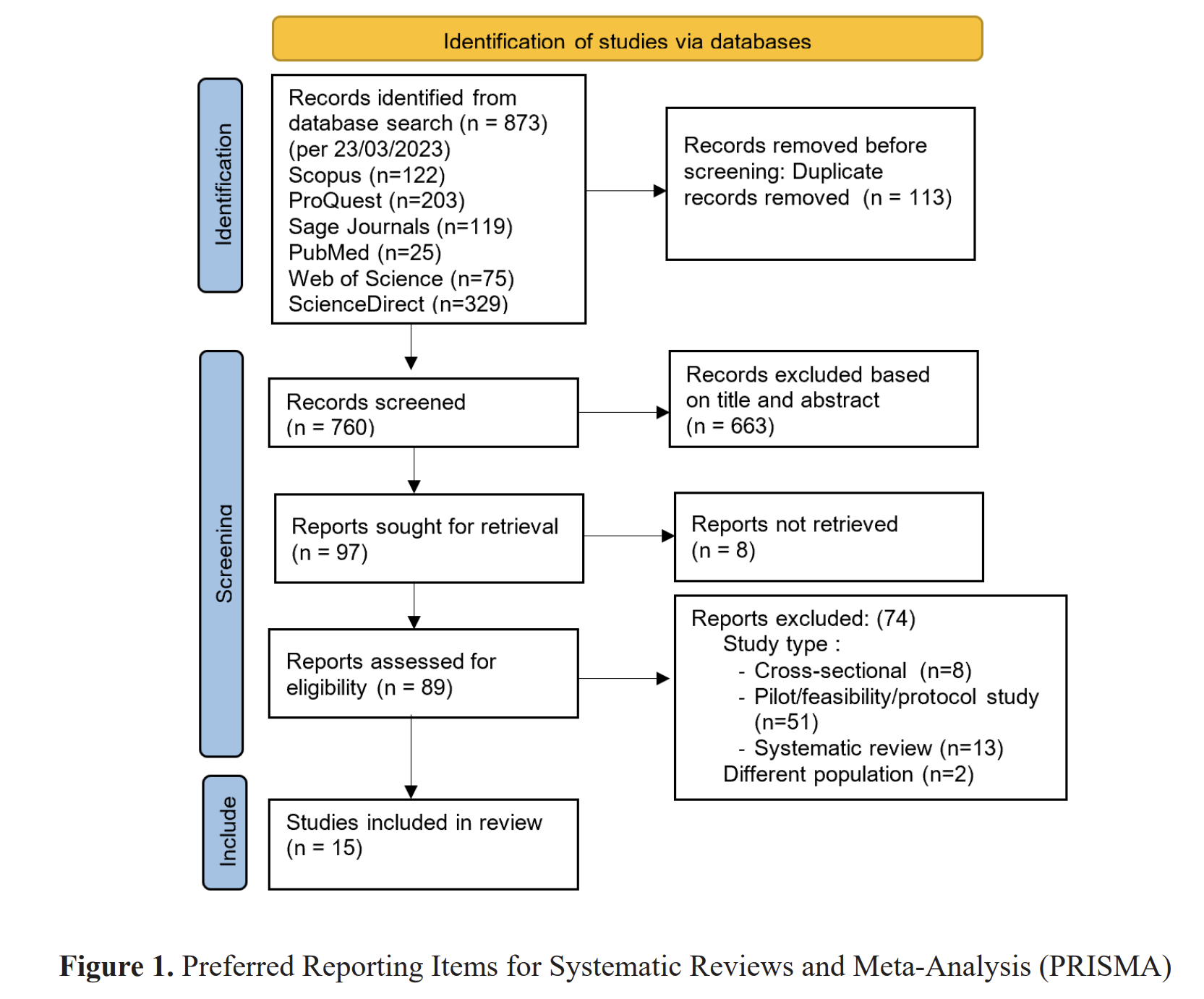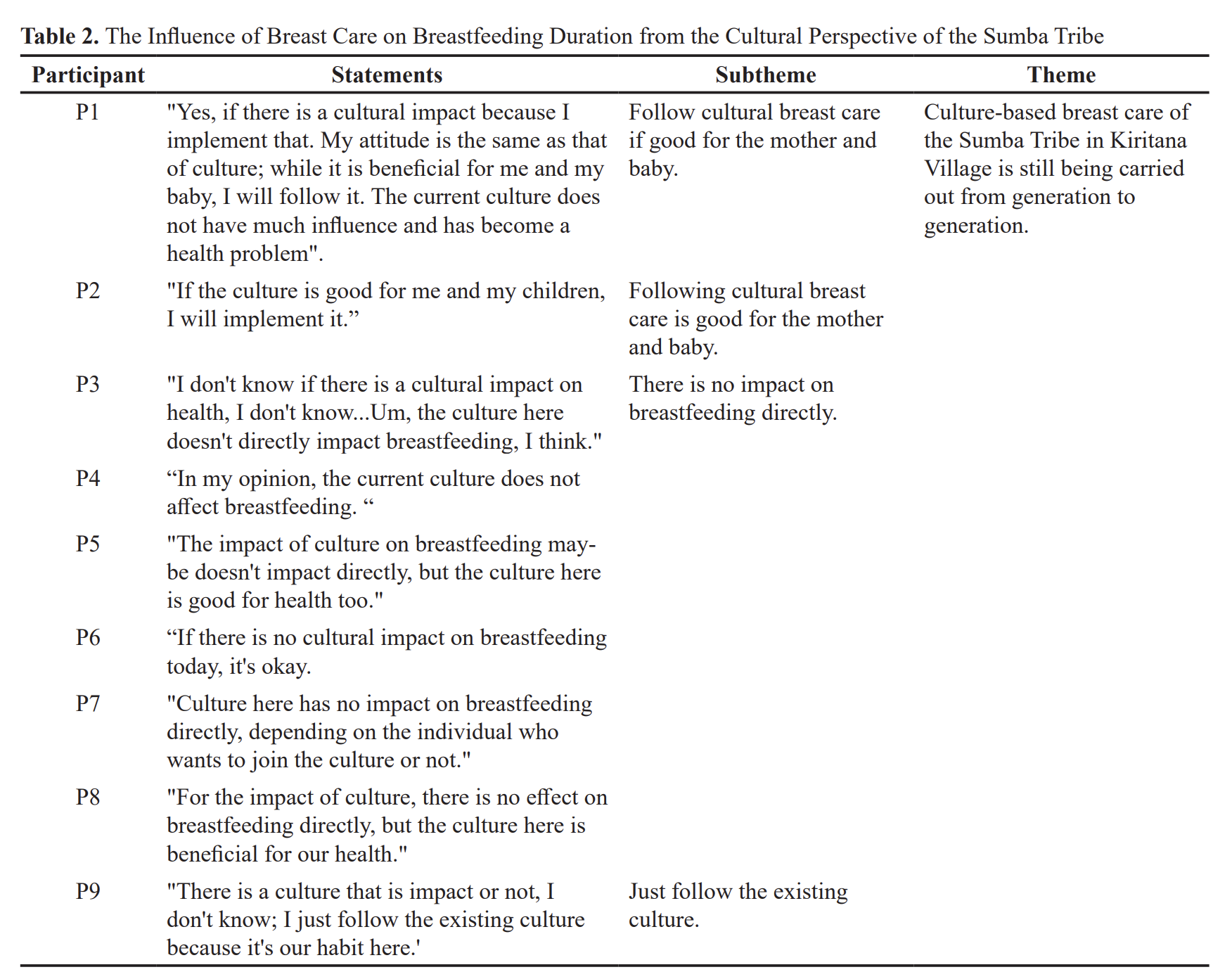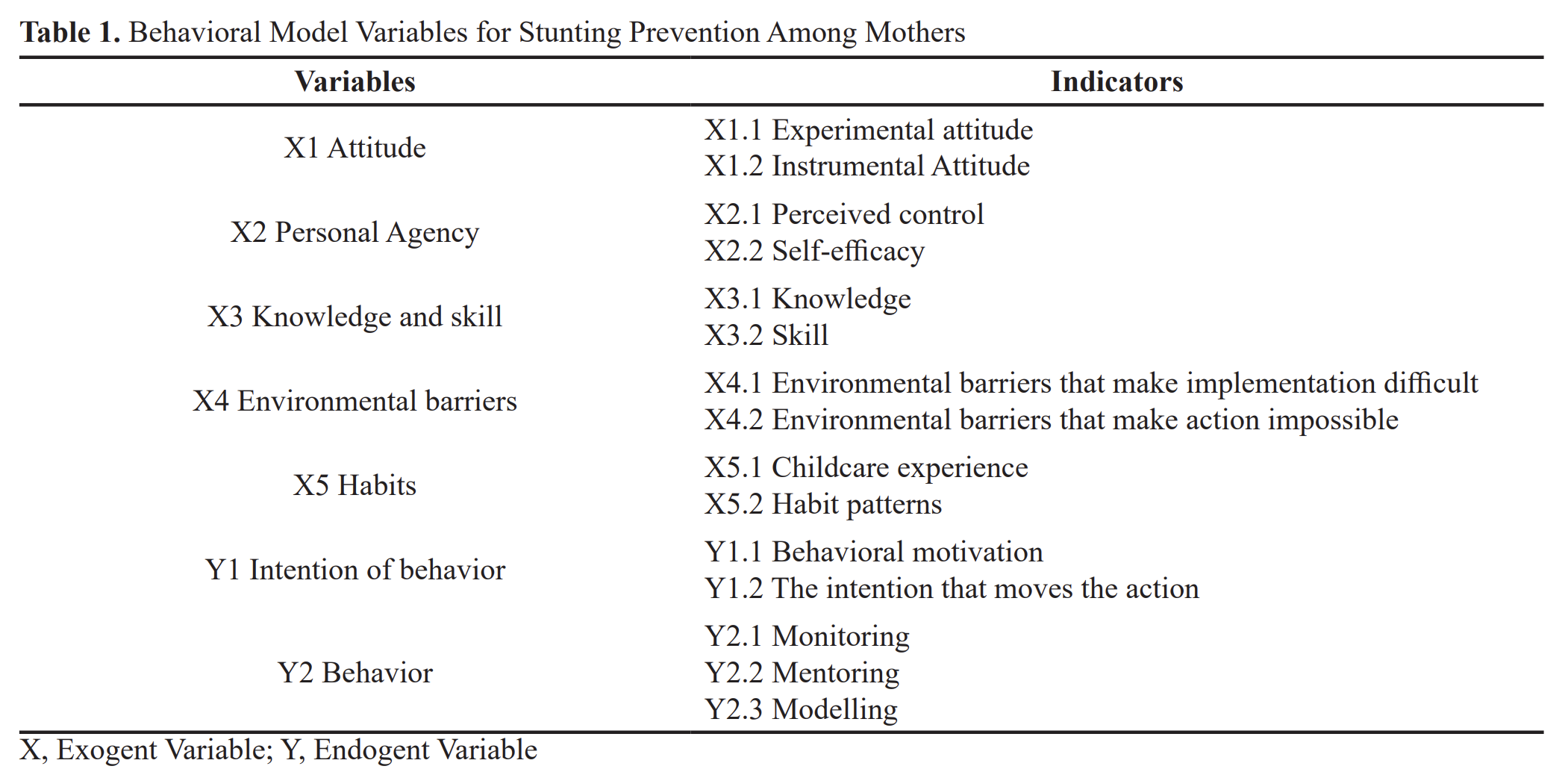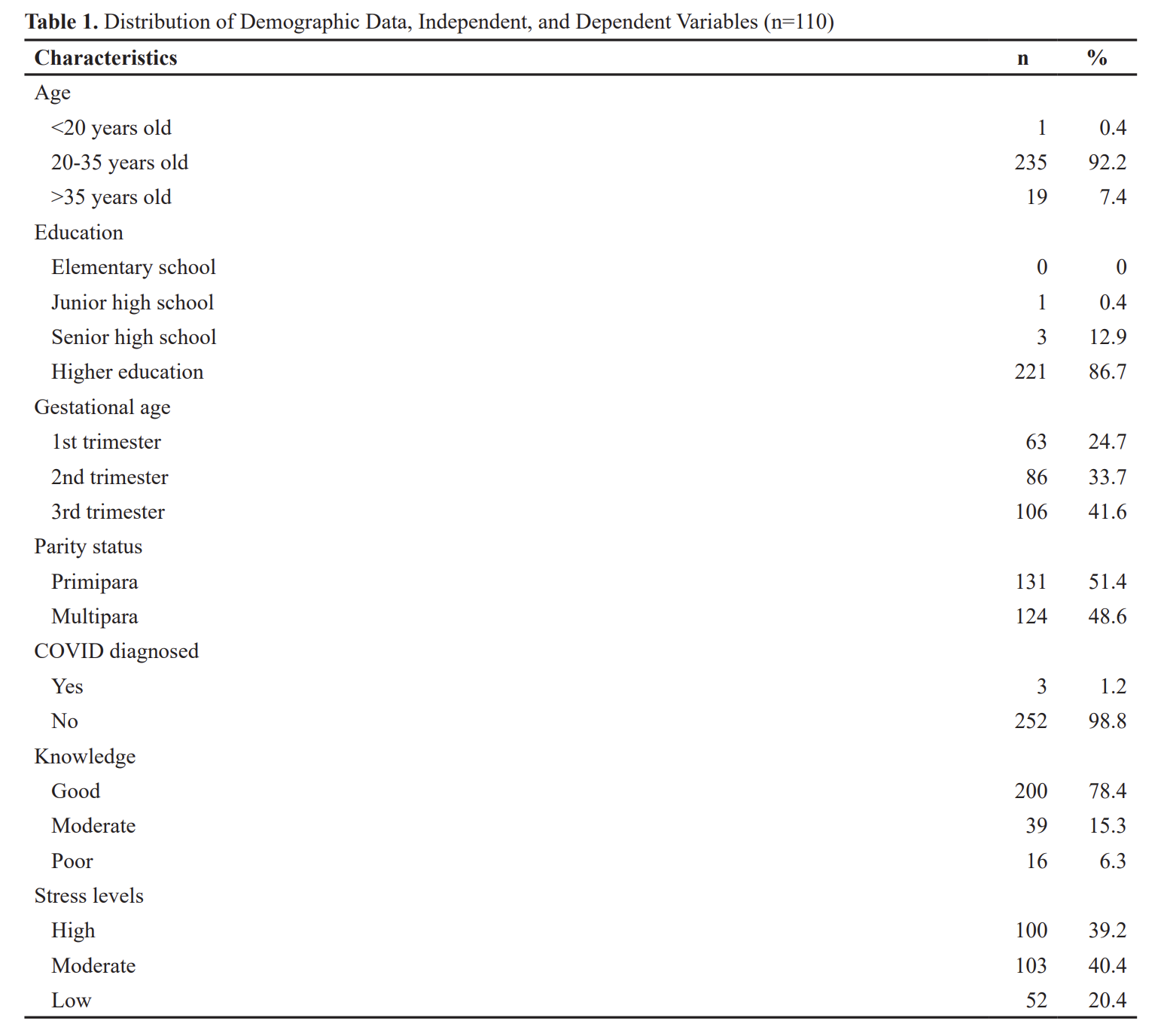Relationship of Family Support and Self-Efficacy with Postpartum Depression among Postpartum Mothers
Downloads
Introduction: The postpartum period is a challenging transition for postpartum mothers. The existence of major changes can make mothers experience mood disorders such as postpartum depression. The purpose of this study was to determine the relationship between family support and self-efficacy with the incidence of postpartum depression.
Methods: This study uses a cross-sectional design. The population in this study was postpartum mothers. The sample involved 97 respondents using a consecutive sampling technique. The inclusion criteria in this study were postpartum mothers with 1-4 month periods. The exclusion criteria used were postpartum mothers with severe mental disorders. Data were collected using Sources of Social Support Scale questionnaires, Perceived Maternal Parental Self Efficacy, and Edinburgh Postpartum Depression Scale. The analysis uses the spearman rho test statistical test.
Results: The results showed there was a relationship between family support and postpartum depression (p = 0.000; r = -0.364) and there was a relationship between self-efficacy and the incidence of postpartum depression (p = 0.000; r = -0.355).
Conclusion: The higher the family support and self-efficacy, the lower the chance of postpartum depression. Postpartum mothers who get high family support will feel cared for, loved, and can share the burden so they can reduce stress which ultimately reduces postpartum depression. Postpartum mothers who have high self-efficacy tend to regard the task difficulties that she faces as an obstacle rather than as a threat that leads to the emergence of depression.
Alligood, M. R. (2014). Nursing Theorist and Their Work (6th edn). In Contemporary Nurse, 24.
Astutiningrum, D., Hapsari, E. D., & Purwanta. (2016). Peningkatan Parenting Self Efficacy pada Ibu Pasca Seksio Sesaria Melalui Konseling (Improving Parenting Self Efficacy after Caesarean Section through Counselling) Diah Astutiningrum *, Elsi Dwi Hapsari **, Purwanta ** * Stikes Muhammadiyah Gombong ** M. Jurnal Ners, 11(1), 134–141.
Barnes, C. R., & Adamson-Macedo, E. N. (2007). Perceived Maternal Parenting Self-Efficacy (PMP S-E) tool: development and validation with mothers of hospitalized preterm neonates. Journal of Advanced Nursing, 60(5), 550–660.
Carver, C. S. (2013). Sources of Social Support Scale (SSSS). Measurement Instrument Database for the Social Science. Retrived from Www.Midss.Ie.
Cox, J. ., Holden, J. ., & Sagovsky, R. (1987). Detection of postnatal depression : Development of the 10 item Edinburgh Postnatal Depression Scale. British Journal of Psychiatry, 150, 782–786.
Dira, I. K. P., & Wahyuni, A. (2016). Prevalensi Dan Faktor Risiko Depresi Postpartum Di Kota Denpasar Menggunakan Edinburgh Postnatal Depression Scale. E-Jurnal Medika Udayana, 5(7), 5–9.
Field, T. (2010). Postpartum depression effects on early interactions, parenting, and safety practices: A review. Infant Behavior and Development, 33(1), 1–6. https://doi.org/10.1016/j.infbeh.2009.10.005
Ghozali, I. (2011). Aplikasi Analisis Multivariate Dengan Program SPSS. Semarang: Badan Penerbit Universitas Diponegoro.
Habel, C., Feeley, N., Hayton, B., Bell, L., & Zelkowitz, P. (2015). Causes of women's postpartum depression symptoms: Men's and women's perceptions. Midwifery, 31(7), 728–734. https://doi.org/10.1016/j.midw.2015.03.007
Indriasari, S. (2017). TINGKAT DEPRESI PADA IBU POSTPARTUM. 5, 43–49.
Kadarwati, & Susilowati, D. (2013). Dukungan Keluarga Pada Ibu Nifas Dalam Mengkonsumsi Tablet Tambah Darah Di Wilayah Kerja Puskesmas Gatak Sukoharjo.
Kemenkes RI. (2018). Laporan Riset Kesehatan Dasar Thun 2018. Jakarta: Badan Penelitian dan Pengembangan Kesehatan Kementrian Kesehatan Republik Indonesia.
Ko, J. Y., Rockhill, K., Tong, V. T., Morrow, B., & Farr, S. L. (2017). Trends in Postpartum Depressive Symptoms ” 27 States ,. 66(6), 2015–2016.
Kokkinaki, T. (2015). Maternal and Paternal Postpartum Depression: Effects on Early Infantparent Interactions. Journal of Pregnancy and Child Health, 03(01), 1–5. https://doi.org/10.4172/2376-127x.1000e126
Kusuma, R. (2019). Karakteristik Ibu yang Mengalami Depresi Postpartum. 19. https://doi.org/10.33087/jiubj.v19i1.571
Leahy-warren, P., Mccarthy, G., & Corcoran, P. (2011). First-time mothers : social support , maternal parental self-efficacy and postnatal depression. 388–397. https://doi.org/10.1111/j.1365-2702.2011.03701.x
Loudon, K., Buchanan, S., & Ruthven, I. (2016). The everyday life information seeking behaviours of first-time mothers. Journal of Documentation, 72(1), 24–46. https://doi.org/10.1108/JD-06-2014-0080
Mariana, N. (2016). Hubungan antara Maternal Self Efficacy dengan Depresi Postpartum pada Ibu Primipara.
Mercer, R. T. (2006). Nursing support of the process of becoming a mother. JOGNN - Journal of Obstetric, Gynecologic, and Neonatal Nursing, 35(5), 649–651. https://doi.org/10.1111/j.1552-6909.2006.00086.x
Mortazavi, F., Mousavi, S. A., Chaman, R., & Khosravi, A. (2014). Maternal quality of life during the transition to motherhood. Iranian Red Crescent Medical Journal, 16(5). https://doi.org/10.5812/ircmj.8443
Nursalam. (2016). Metodologi Penelitian Ilmu Keperawatan (Jakarta). Salemba Medika.
Putriarsih, R., Budihastuti, U. R., & Murti, B. (2018). Prevalence and Determinants of Postpartum Depression in Sukoharjo District, Central Java. Journal of Maternal and Child Health, 03(01), 395–408. https://doi.org/10.26911/thejmch.2017.03.01.02
Tang, L., Zhu, R., & Zhang, X. (2016). Postpartum Depression and Social Support in China: A Cultural Perspective. Journal of Health Communication, 21(9), 1055–1061. https://doi.org/10.1080/10810730.2016.1204384
Wahyuni, S. (2014). Faktor Internal Dan Eksternal Yang Mempengaruhi Depresi Postpartum. 131–137.
WszoÅ‚ek, K., Å»urawska, J., Åuczak-Wawrzyniak, J., Kopaszewska-Bachorz, B., GÅ‚owiÅ„ska, A., & PiÄ™ta, B. (2018). Postpartum depression–a medical or a social problem? Journal of Maternal-Fetal and Neonatal Medicine, 7058. https://doi.org/10.1080/14767058.2018.1555802
Copyright (c) 2021 Cucu Eka Pertiwi

This work is licensed under a Creative Commons Attribution 4.0 International License.
1. The journal allows the author to hold the copyright of the article without restrictions.
2. The journal allows the author(s) to retain publishing rights without restrictions.
3. The legal formal aspect of journal publication accessibility refers to Creative Commons Attribution (CC BY).

